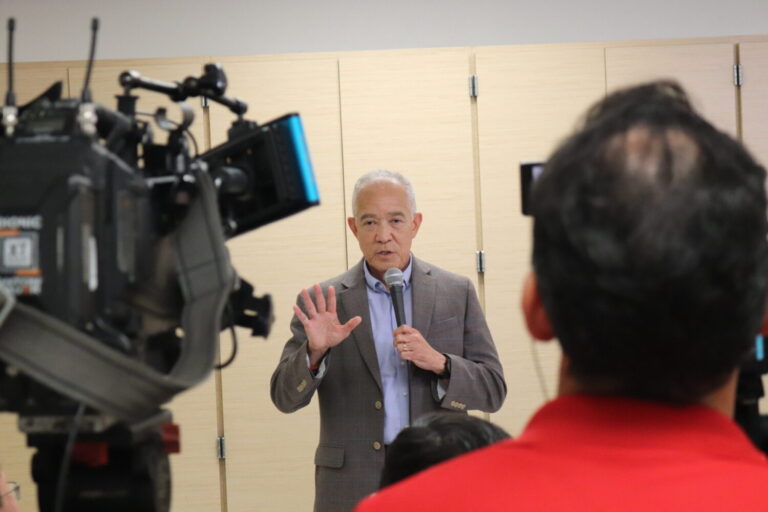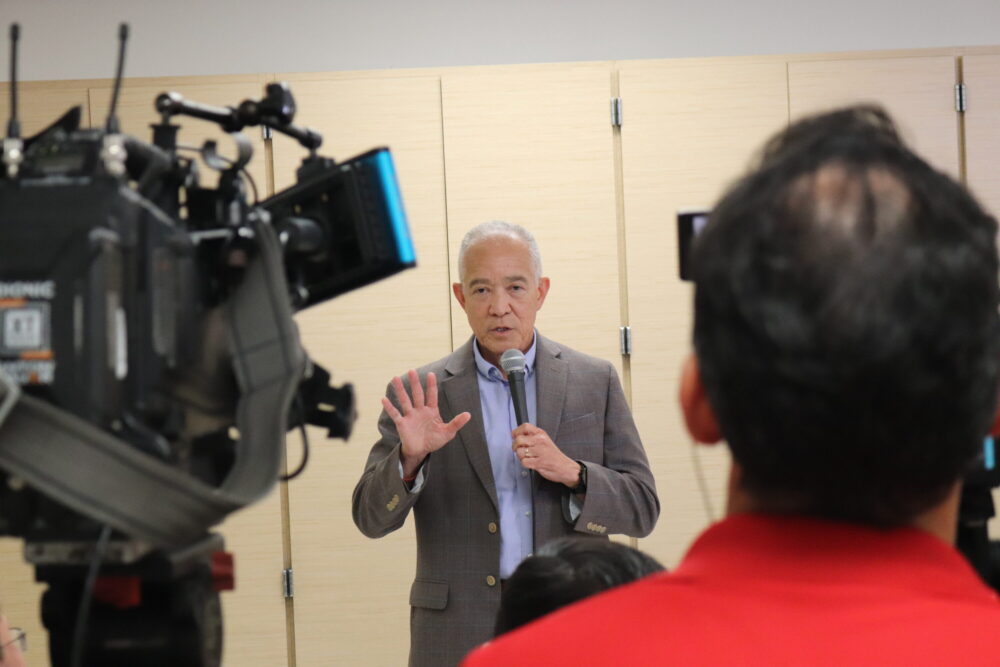With the start of classes one week away, special education teachers across Houston ISD have lost access to an autism services team that one educator described as “our lifeline.”
The team consisted of about half a dozen “itinerant teachers” who primarily supported educators working in Structured Learning Classrooms (SLCs), which specialize in serving students with autism. Houston ISD confirmed that those positions have been eliminated as part of an organizational overhaul.
“The itinerant teachers are the first person we call when we have a crisis in the classroom, or if we get a new student and we need some support,” said an SLC teacher who requested anonymity. “They’re invaluable for brand new teachers. I don’t know what I would have done when I first started if I didn’t have an itinerant who came in and basically helped me get my classroom started.”
After the Texas Education Agency appointed Mike Miles as superintendent in June, he began a major overhaul of the Central Office, including the elimination of more than 2,300 positions and the reorganization of the administration into four divisions.
According to a district spokesperson, those four divisions will each have a special education “unit” consisting of a director, a manager and two coordinators. The itinerant teachers are still on payroll, will be allowed to apply for other positions and, if hired, “will still provide support and coaching” for SLC classrooms “but to a much more defined group of campuses.”
“It’s not the same level of services,” the SLC teacher said. “It’s not specialized for autism. Many of these people would ask us to contact autism services because they didn’t know what to do.”
While focused on SLCs, the autism services team also assisted with students placed in general education and other settings upon request. Team members were notified last week that their positions no longer exist.
The elimination of the team came with the beginning of the school year around the corner. For many students with autism, a highly structured start of class is essential to their success throughout the year.
“Students with autism have such unique needs — they just need very particular things in a classroom structure,” the SLC teacher explained. “If the structure is not there in the classroom, students might try to leave the classroom … There can also be behaviors — self-injurious behavior, aggressive behavior.”
According to the district, over the past week SLC teachers “were provided with opportunities to participate in SLC-specific professional development, and all teachers and support staff can continue to access additional coaching and professional development throughout the school year.”
But that training wasn’t led by the autism services team.
“The training (from the autism services team) at the beginning of the year was invaluable,” said the SLC teacher who requested anonymity. “It would be like three days of really intense training just on autism and how to set up a classroom for students with autism. We didn’t get any of that this year.”
Not every SLC is the same. Some focus on students with more severe cognitive disabilities requiring an “alternative” curriculum. Others are tailored to students who need socio-behavioral support but can still access the general education curriculum. There are about 120 SLCs in the district.
Sasha Alvarado’s daughter is entering the third grade at Lovett Elementary, where she was placed in a general curriculum SLC when the family moved to Houston in December.
“I honestly really feel for these teachers because they did an amazing job last year,” Alvarado said.
The district also recently slashed 21 independent contractors who assisted with special education evaluations and services. After the contractor positions were cut, a spokesperson emphasized that “Houston ISD has not released special education teachers” and that the district was “currently recruiting for special education teacher positions.” Days later, the itinerant teacher positions were slashed.
“I’ve seen the massive cuts to the contract workers which was, again, very concerning,” Alvarado said. “Because my impression has always been that there’s inadequate staff dealing with the special ed students, and to have even less now is definitely not helpful — the opposite direction of where we need to be going.”
For parents of students in special education, the new administration has elicited mixed reactions. Many parents have long criticized the district’s special ed services as dysfunctional, and some want to see the department “burned down and rebuilt,” according to Jane Friou — co-founder of the Houston Special Education Parent Association.
“There’s a lot of parents who are so angry that they’re happy when special ed staff get laid off because they want the department to disappear and be rebuilt,” Friou said. “I am not one of those people. I know we need people, and if we fire people, we’re gonna have a hard time finding them. But it’s the systems that I think are broken.”
While student test scores and school accountability ratings have made the headlines, special education is also at the heart of the state takeover. In 2021, the Texas Education Agency placed conservators to oversee special ed compliance in Houston ISD. Of 26 progress measures, the district was “on track” for only 9 as of the end of March, according to conservator reports obtained by Houston Public Media. The district must achieve full compliance with state and federal laws protecting disabled students before residents can regain local, democratic control.
Special ed staffers have argued that the strict accountability from the state is ironic, considering the severe shortfall in funding from the Texas Legislature. As the Houston Chronicle first reported, the TEA found that Houston ISD spent $166 million more on special education than it received in state funding from 2020 to 2022.
State lawmakers considered increasing funding for special education during the regular session that ended in May, but the proposal got caught up in the fight over school vouchers.
TEA-appointed superintendent Mike Miles plans to release a comprehensive plan for Houston ISD’s special education services in September, according to an expansive master plan obtained by Houston Public Media.
Friou praised Miles for including special education compliance as a component in how campus principals are evaluated, but she wondered why the full plan isn’t coming until after classes start.
“The feeling is that our kids are an afterthought,” she said.
This article was originally published by a www.houstonpublicmedia.org . Read the Original article here. .




